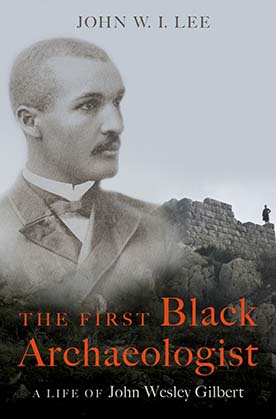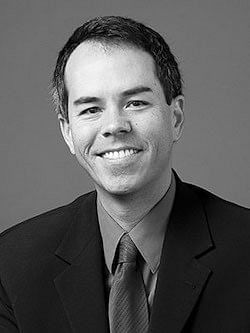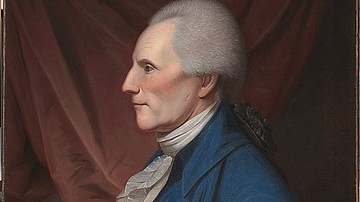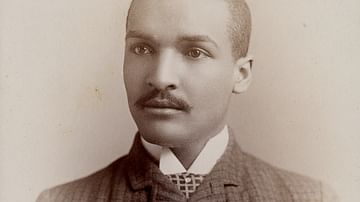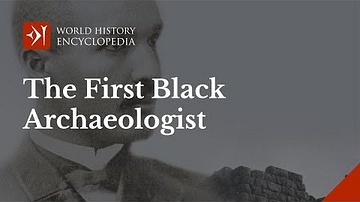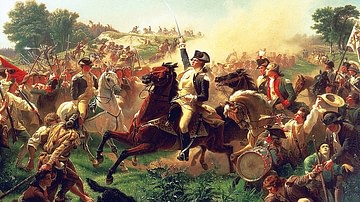John Lee joins World History Encyclopedia to tell us all about his new book, The First Black Archaeologist: A Life of John Wesley Gilbert.
Kelly (WHE): Thank you so much for joining me! Let us start by talking about what the book is about and who this John Wesley Gilbert is.
John Lee (Author): Sure! John Wesley Gilbert was born in rural Georgia in 1863. He was born into slavery and he rose from those beginnings to become nationally known as a scholar, educator, community leader, and missionary. One of his great accomplishments was being the first African American scholar to go to Greece in 1890 to conduct professional archaeological work, hence the title of the book, but his life encompassed a wide range of activities that go beyond his archaeological work.
My book is a story of a boy who grows up in poverty, facing racism and violence, a boy who seemed like he would have no opportunities. But thanks to dedicated teachers – both black and white –, his unceasing drive to learn, and the opportunities that unexpectedly presented themselves, he was able to rise from those humble beginnings and achieve in a lot of different areas. My book takes this story from his boyhood in Augusta, Georgia, through his early education in Georgia. It takes him to his years at Brown University in Providence, Rhode Island, where he was only the third African American graduate. Then it takes him to Athens, Greece, where he was one of the very first students of the new American School of Classical Studies at Athens. It was the first research institution that the United States had ever planted overseas. He became one of the first 50 Americans of any race, ethnicity, or background to do professional archaeological work in Greece.
He traveled all over Greece. He wrote a thesis at the American School that would help him earn an advanced degree from Brown, and so he became Brown's first African American advanced degree recipient and also one of the first African Americans anywhere in the United States to have an advanced degree in classical studies. Then he excavated on the island of Euboea at the ancient site of Eretria, north of Athens. He was part of one of the very first American excavation teams in Greece. That is the heart of the story, but I also follow his life after Greece. In the years after he returned from Greece in 1891, he was a professor of Greek and English and German at Paine College, which is a small college in Augusta, Georgia, that had been founded to educate black students by a cooperative venture of both black and white Methodists in the south. It was unique, a Southern institution that was cooperatively run by an interracial board of trustees, and he devoted his life to that in many different aspects. He also became a leader in his hometown of Augusta, in the Church, in community, in civil rights.
In 1911, Professor Gilbert joined a white bishop, Walter Russell Lambuth of the Methodist Episcopal Church South, which was a white-dominated Methodist denomination, and together Bishop Lambuth and Professor Gilbert embarked on an eight-month journey to what was then the Belgian Congo in an endeavor to establish a Methodist mission there. They made contact with the local leader at a place called Wamboniyama, and they laid the groundwork for a mission that exists in some form up until this day. Professor Gilbert had a very eventful life, and I trace all that from his boyhood days until his death. I also try to place him into the broader context of his time and talk a bit about his legacy.
Kelly: He sounds like an amazing man. So many different things in one lifetime! What made you want to write the story of John Wesley Gilbert? Why this book?
John: The funny thing is I did not start off planning to write a book about John Wesley Gilbert. As you know, my main field is ancient Greece and the Achaemenid Empire, the first Persian Empire. Most of my career has been devoted to publishing on those topics, and I actually got into Professor Gilbert's life by accident. I was looking for a side project because I was bogged down in another project on the ancient world, and I thought here is something I do not know anything about, and I just got curious. The reason I got curious is that Professor Gilbert was at the American School of Classical Studies at Athens from 1890 to 1891, and I was a student there from 1996 to 1997. I did not know it at the time, but I sat in the same library room where he did. I visited many of the same archaeological sites that he did. In essence, I walked in his footsteps before I had even heard of him.
Kelly: So you have also got this personal connection to this Professor Gilbert. Did you ever stumble upon his name at all in your work on Greece?
John: No, I did not. That is also part of my story. I mentioned Professor Gilbert's Congo mission; because of that mission, he was well known throughout the 20th century in the Methodist tradition both in his denomination, the Christian Methodist Episcopal, or CME Church, which is an African American denomination, and the United Methodist Church, which absorbed the denomination of Bishop Lambuth. These churches have long revered Gilbert for his role in the Congo mission. It is part of the shared heritage of those groups. On the archaeological side, I think American archaeologists working in Greece have not thought enormously about their own history until recently. People have studied it, but it has been more institutional than personal.
Kelly: Was he the only one who was forgotten in that archeological history of Greece, or are there others who are slowly gaining the limelight that they deserve?
John: There are many other African American classical scholars whose lives are now becoming better known. Of course, there are African scholars of classics as early as the early modern period who are working in Europe, but in terms of the post Civil War United States, now there is increasing attention on these figures, both men and women, many of whom pursued their careers in the segregated South. There are others who stepped out onto a national stage. The most famous example is William Sanders Scarborough, who was also from Georgia. He was about a decade older than Gilbert, and he became nationally known. He was perhaps the most famous black classical scholar of the late 19th and early 20th centuries. However, Gilbert was the first African American to go to Greece to study archaeology. Into the 20th century, Gilbert was really the first and only for a long time, the only African American archaeologist.
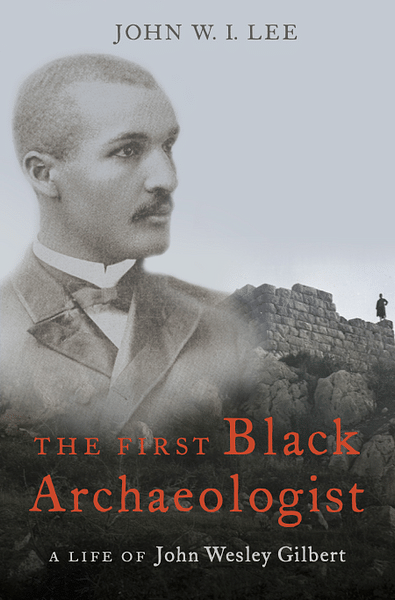
Kelly: It must have been so fascinating to read about his illustrious career and his exciting life. What was the most interesting thing that you learned about him during writing this book?
John: One of the interesting things is that I had to reassemble Gilbert's life basically from fragments because he had four children, three of whom survived into adulthood and they married, but they never had any children. He had no grandchildren, and so his papers, family letters, and other possessions were all lost. And then the archives of Paine College, the school where he taught at, were tragically destroyed in a fire in 1968. At first glance, it did not seem like I had anything at all because everything was destroyed or lost, but I am an ancient historian, I am used to working with fragments of the past. Maybe that explains another reason why I was drawn to the project. The most exciting things are Gilbert's own writings; fragments of his writing survive from Greece and also from the Congo, and they survive as quotations in other sources. I was able to find those documents and hear Gilbert's story in his own words. That was very exciting.
Kelly: That is very cool. Did it take you a while to get through all of the bits and pieces that you had? Plus, were there any sort of other secondary sources that you had available to help reconstruct his life?
John: Yes. I started working on this in 2015. For humanities, it is not unusual to spend the better part of a decade on a writing book. I had good timing. I visited Georgia, Rhode Island, South Carolina, North Carolina, and I went to Greece. There were places where I was able to find documents that talked about Professor Gilbert that came from the network of scholars around him. I was able to find that kind of evidence by the end of 2019. I do not need to tell you that if it had been a couple of months later, the book would not be done. Gilbert would have probably said it was providential that that happened. Then by the time I was working on the Congo and I needed material from archives in the Southern States of the United States, many of those archives were open again in Mississippi, Tennessee, and I was able to order documents from archives. If I had been off by a few months, I would still be struggling. I say that partly because I know that there are other scholars out there who have had those challenges. I am deeply sympathetic because my timing happened to be good, and I was able to finish the book in time.
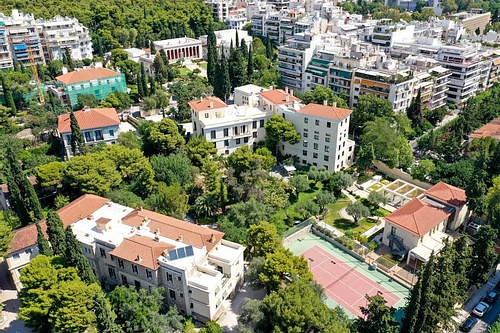
Kelly: What do you think is one thing that everybody should know about the life of John Wesley Gilbert or your book in general?
John: So first about Professor Gilbert as a person. He was an incredible linguist. He mastered classical Greek and classical Latin, which was the standard for education in those days. He spoke French and modern Greek very well. He spoke German decently, well enough to teach it at his school. He studied biblical Hebrew as part of his work. Then when he went to Africa and mastered the conversational basics of two African languages. These are languages that are spoken in what is today the Congo. So here is someone who was intellectually gifted and had the ability to master these languages and then also teach them. It is a book about a scholar, but one of the striking things about him is that he was good with children. He knew how to interact with kids, and kids loved him, and they would come up to him and talk to him. That is another part of his life that I think is equally important. Being a father, in a way, gives you equally important insight into his character that he had the kindness and patience needed to be good with kids, as well as being intellectually brilliant and gifted teacher.
Kelly: It is not the kind of information you would normally get to know about a person from history; it is a very personal thing. If you get any sources about a person, you do not tend to find out how they are with their family or their kids. That is a deeply intimate thing to know about him.
John: I mentioned his children: his third daughter died at age 18 very suddenly, probably of an infection or appendicitis, just when she was about to go to college. All of his children accomplished things in their own spheres, but she seems to have been the one who was destined for a very bright future. Then her life was very tragically cut short. So in his own life, he also had to confront that kind of personal tragedy. These are ways of saying that this is someone who was a complex and multifaceted person, who is not just an abstract figure we are going to put on a pedestal. In my book, I try to bring out the different facets of his life as much as I can from the fragmentary sources and reveal how people saw him as a person.
Now if you were going to ask me what people should know about Professor Gilbert in a wider context, I would say that Gilbert is in one respect not unusual. He is part of one of the greatest achievements in the history of the United States, and that is the rising up of African Americans during and after the Civil War, coming to freedom and then coming to education. Gilbert was not unusual in pursuing learning with this deep enthusiasm. We have many sources from the 1860s, 1870s, 1880s that talk about young people, old people, men, women, boys, girls, all striving to learn. If you look at the speed with which the rate of black illiteracy declined in the United States in the 19th century, basically around 1870, I may get the figures wrong, but it was on par with the international average. 80% of African Americans or more were illiterate, and that had fallen off in a generation to under 20%. I think this is just amazing. It is a story that anybody who knows the history of historically black colleges and universities is familiar with, but in our wider conversations in the United States, it is not as well known. It is so inspiring.
Kelly: And now people can know a lot more about this by picking up your book and reading all about his life and his achievements. Did you have any involvement with the community in Augusta, Georgia, while researching and working on this book?
John: I did. I mentioned that I had been a student in Greece, and so I had been to Greece before many times, and I went again to Greece in the course of my research, but I had never been to Augusta, Georgia. I made several trips there, and I received invaluable mentorship, guidance, and help from many people in the community. I would mention Dr. Mallory Millender, who taught French and journalism at Paine College for many years, and he is the college's historian. We first met online. We were introduced by a friend of Dr. Millender, Reverend Ashley Calhoun, whose father had been the President of Paine College from the 1950s to the '70s. So when I went to Augusta, Dr. Millender took me everywhere, helped me meet people, showed me the important places that were related to Gilbert's life. He introduced me to many others in the Augusta community, people who worked for historic preservation groups, people who were involved with the Lucy Craft Laney Museum of Black History, Historic Augusta, many other organisations, and of course, to Paine College, where Doctor Millender was an alumnus himself.
This is a book that came out of my interactions with this local community. I like to say whenever I give a talk that this is the story of Paine College and it is the story of the people of Augusta, especially of its African American community. I am really just the messenger. It was just given to me to tell this story and to share it with a broader world. I got help from so many people in Augusta, and one other person I would mention is Ms. Alana Lewis, who is the archivist at Paine College. I mentioned that Paine's archives had been destroyed, but bits and pieces survived, and more things kept coming. Ms. Lewis played a very crucial role in organising and preserving and putting together this material so that it was available for a researcher like me to come and visit. She and her staff and, in fact, everybody that I interacted with in Augusta were always so welcoming, helpful, and friendly.
One of the very special things about this book was to interact in that way because if you do ancient history, the people you are studying have been dead for a long time. It was very meaningful to make a difference by contributing to this community's history.
Kelly: That makes me think of the sort of archaeology that archaeologists in Australia are now working towards. It is very community-based archaeology, and it is working with the community to learn about their history.
John: You mentioned the way that archaeology is moving in Australia. I have written a book about a pioneering figure about a century ago, and it is important that we acknowledge his legacy and his accomplishments, along with the many other people who have been hidden figures. I hope that this book will prompt people to think about students who may be young and may face challenges to getting an education, may not have opportunities, may not be drawn to one scholarly field or another. I hope that my book also makes everyone who reads it think about how they can create opportunities for others. Academic books do not tend to sell a lot of copies, but if reading about this story from the past prompts someone to think about what can be done today and in the future, then I think that would be another way to honor Professor Gilbert's legacy.
Kelly: The story and life of Professor Gilbert transcend beyond his lifetime.
John: I think about the struggles that he faced and the way he persevered, and I think that we can draw inspiration from that and not just be content to go that was a great story from the past but think about how we can bring this kind of spirit into our present.
Kelly: Thank you so much for joining me today and talking all about your new book The First Black Archaeologist: A Life of John Wesley Gilbert.
John: Thank you so much.

